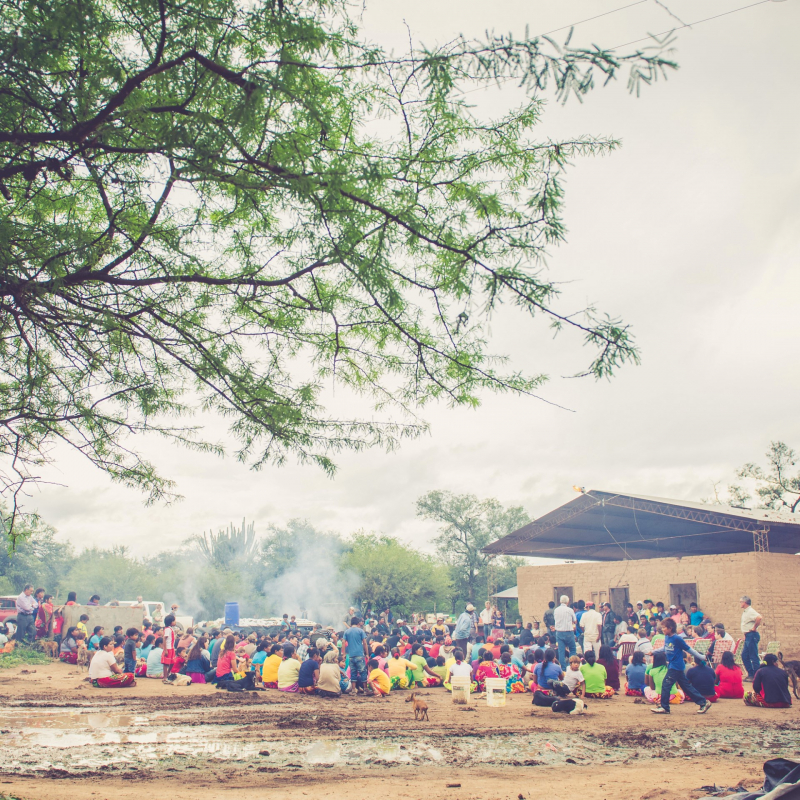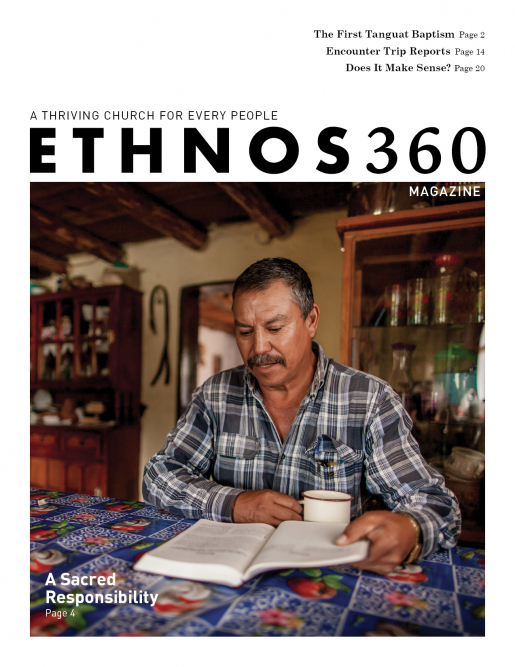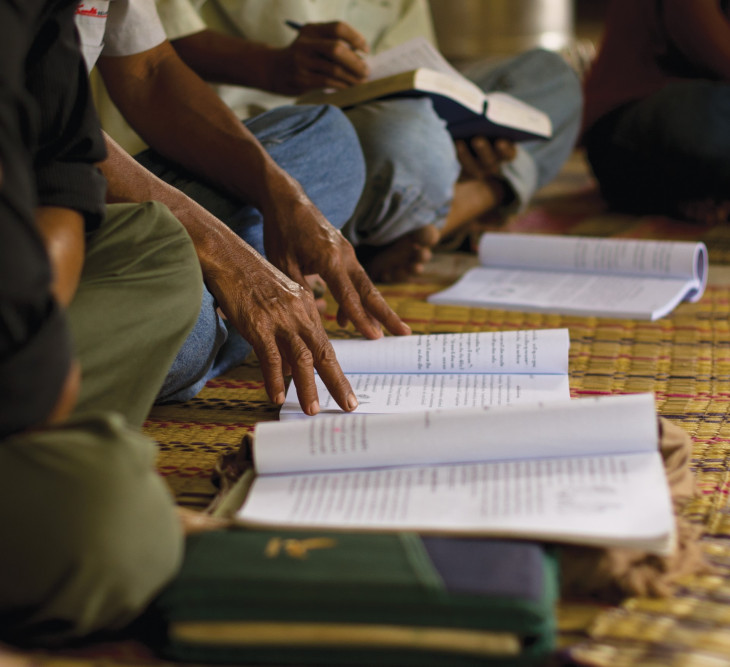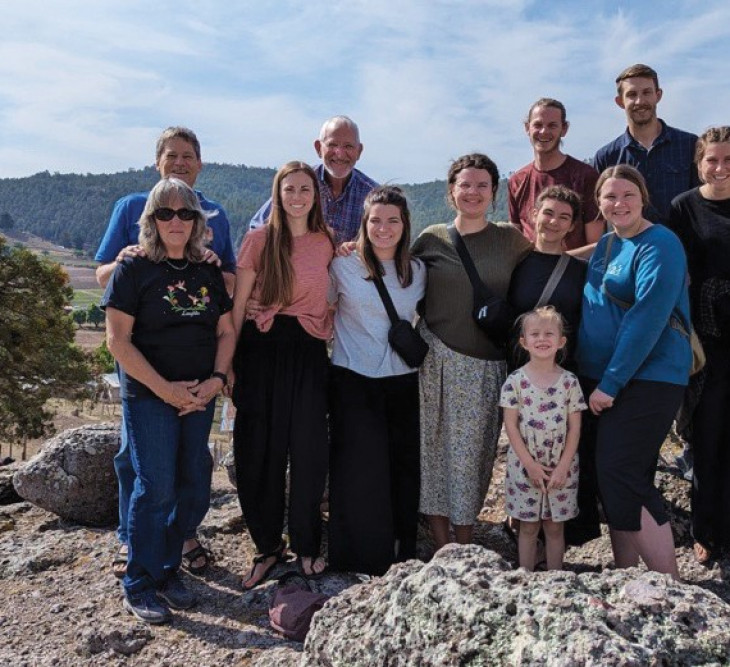Does It Make Sense?

When my son Jeff and I, as Bible translators, are working in the Scriptures, many words and concepts give us headaches because, at first, they do not translate accurately into the target language. Often, we label these words and concepts as “Key Terms” because they are used over and over throughout the translation project. Without an accurate, concise translation, many of these concepts are often misunderstood. As we continually work on these terms, we spend a lot of time polishing them and often find ourselves frustrated if the translated term is still “weak,” meaning it may not be well understood by the indigenous people. These terms are one of the main areas of focus for the consultant when he or she comes to do the final check on any translated portion. There are many such terms, but there are two of them which stand out way above the others to me in terms of difficulty; they are the words modest and grace.
Let me start by examining the word modest. We cannot just say to the indigenous people, “God tells us we must dress modestly” because modesty is something different in every culture. What did modest and discreet dressing look like in Bible times? What does modest and discreet dressing look like today in our Western culture?
Then we come to the Manjúi world; when we first started working with these people back in the early 1970s, some of the older men were still wearing loin cloths — a flap that covered only their front parts. And the women would wear nothing on top when they were sitting around their fires at night. For many years, not one Manjúi woman would ever wear pants. Also, we never saw one Manjúi woman wear shorts. For the Manjúi, shorts on women were a “no-no,” but wearing nothing on top at home around the fire was OK. I wondered sometimes, in our later years with them, if they thought we foreigners were less modest than they were, so how were we to define the term modest?
A passage that uses this term comes up in 1 Timothy 2:9 and 10, where Paul was saying, “… that the women adorn themselves in modest apparel, with propriety and moderation, not with braided hair or gold or pearls or costly clothing, but, which is proper for women professing godliness, with good works” (NKJV).
In the context of this passage, the overall point Paul was making was that women should not be so focused on their outward appearance, but rather they should give attention to the internal. Sexual suggestiveness in dress is not stressed here, but I do believe it is included. We come to this conclusion partially based on the Ephesian culture of the day, but also because we have an adjective in Greek preceding the word clothing and two adverbs following it. The Greek word preceding clothing is kosmios and means “orderly, decorous, or of good behavior.” The words modest and respectable have been used to express this term in most English translations. The Greek phrase that follows the word clothing or apparel in this verse is metáh ahee-dôse, which means literally “with downcast eyes.” This has to do with bashfulness as well as awe and reverence toward the opposite sex. This phrase has been translated into English in the King James Version as “with shamefacedness,” in the New American Standard Bible as “discreetly,” in the New International Version as “decently and with propriety” and in the New Living Translation as “not drawing attention to themselves.”
So, we can conclude that Paul was asking that women dress discreetly, in such a way that the attention would not be drawn to themselves. The final idea in Manjúi that we came up with was that women should wear clothes that would be nice but that these clothes should not cause men to look at them in a bad manner. If you were a Bible translator, how would you have handled this?
The second word we had some difficulty with was the word grace. As English speakers, we usually understand this word to mean something that is free or something coming from God that we can't earn, but the first problem with translating this into the Manjúi language is that these people have almost no abstract nouns in their language. Every word in the English translation that is covered by an abstract noun must be changed into a verbal expression for the Manjúi to understand it well. This includes not only the word grace, but many other words like mercy, patience, peace, joy, faith, blessing, honor and holiness. If we were to describe how each of these abstracts was handled in Manjúi, this would become a book, so we'll only deal with the word grace here.
A second problem we faced in translating the word grace was more of a cultural issue; this is because nothing is “free” in the mind of the Manjúi people — everything is in a sense worked for or paid for. Usually even a “gift” must be paid back by giving a gift back. We observed this many times when someone would give something publicly to a friend when they had just purchased an item at the village store. Immediately the person who was gifted something would turn around and give something right back as we foreigner missionaries looked on.
After many trial translations working with our Manjúi friends, who by that time were believers and understood well that we cannot earn our salvation, the final phrase for God's grace became this: “God has gifted us with what cannot be strived or worked for.” As we continued using this in all contexts of Scriptures, including the greetings in the New Testament epistles, it was found to be somewhat cumbersome because of its wordiness. So, the Manjúi church leaders shortened the phrase to, “What cannot be strived for,” but by this time everyone knew the background of the phrase, so this shorter phrase became the standard word for grace with good understanding. Whenever the time came for the final consultant check, we Manjúi translators were always asked by the consultant, “Is this the best idea you can come up with for the word grace?” We would always take time to explain the whole process to them.
What about you? Do you ever think what words in the Bible might mean to another people group who don't speak your language? These difficulties often make translation very challenging, but it is also incredibly rewarding when you see the faces of the people light up when they begin to understand the Word of God in their own language. Have you ever considered becoming a Bible translator?






